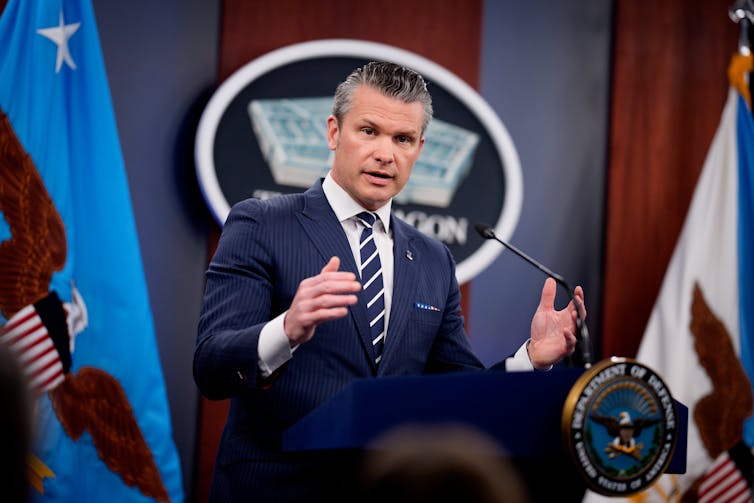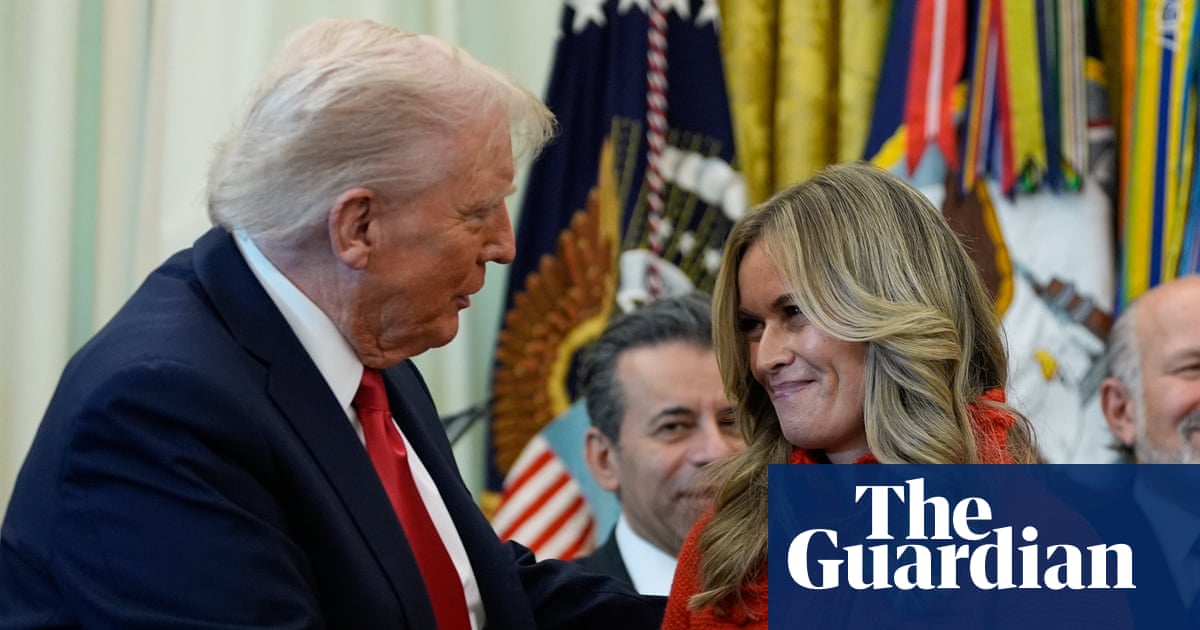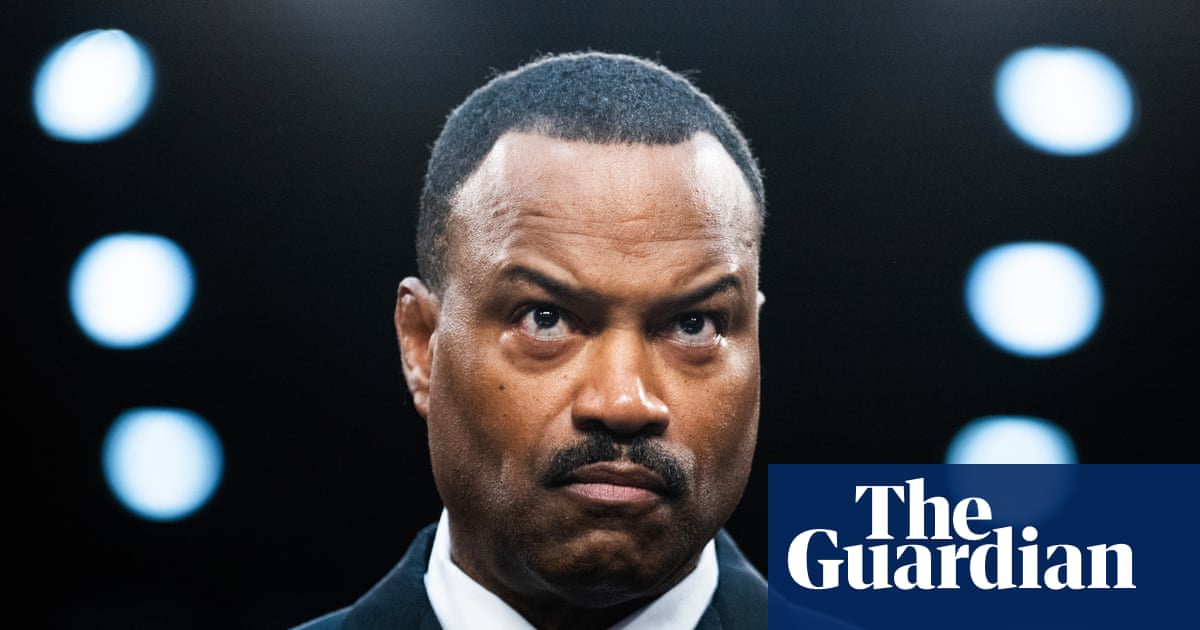Throughout modern American history, reporters who cover the Pentagon have played an invaluable role shining a light on military actions when the government has not been forthright with the public.
For instance, reporters covering the Biden administration’s decision to withdraw from Afghanistan in 2021 revealed the chaos that ensued and repudiated official statements claiming the pullout was smooth. That included reporting on a drone strike that killed 10 civilians, not ISIS militants, as the government initially claimed.
But free press advocates warn that recent changes in a Pentagon policy threaten journalists’ ability to cover the Department of Defense. That’s because it could curb their rights to report information not authorized by the government for release.
An initial policy change announced on Sept. 20, 2025 – and later revised – forbade journalists from publishing anything that hadn’t been approved by government officials. It gave journalists 10 days to sign and agree to the restrictions. A refusal to sign could have resulted in a cancellation of their press credentials to enter the Pentagon.
As a First Amendment expert, I believe the Pentagon policy change represents an unprecedented development in the Trump administration’s offensive against the press and a historic departure from previous administrations’ policies.
Attacks on journalism, said once-imprisoned journalist Peter Greste, “are a national security issue, and we have to protect press freedom.” Greste spoke in early October 2025 at the Global Free Speech Summit in Nashville, Tennessee, adding that “anything that undermines press freedom undermines national security.”
Greste was jailed for more than a year in Egypt while working for Al Jazeera in 2013. In Nashville, he drew a direct connection between the public’s access to information under a free press and the stability and freedom that democracies enjoy.
Even President Donald Trump seemed critical of the policy initially, telling a reporter in September 2025 he didn’t think the Pentagon should be in charge of deciding what reporters can cover.
An attempt to control critical coverage
Under the initial Pentagon policy change, journalists covering the Defense Department were required to sign a contract saying that department information must be “approved for public release by an appropriate authorizing official before it is released, even if it is unclassified.”
Defense Secretary Pete Hegseth told Fox News on Oct. 5, “The Pentagon press corps can squeal all they want, we’re taking these things seriously. They can report, they just need to make sure they’re following rules.”
Media outlets decided they could not accept the policy change. They also mulled legal action.
The Pentagon revised its initial policy change on Oct. 6 and set an Oct. 14 deadline for journalists to comply. The revised policy says prior approval would not be required to report on the Defense Department, but it suggests that soliciting information from Pentagon sources “would not be considered protected activity under the 1st Amendment.” But journalists who don’t sign and follow the revised policy could be deemed “security risks” and lose their credentials to access the Pentagon.
As the Oct. 14 deadline approached, dozens of media outlets said they would not sign the revised policy. Fox, Newsmax and the Daily Caller – all conservative news organizations – have also rejected the policy. The following day, journalists from dozens of news outlets turned in their press passes rather than agree to the new policy.
The Pentagon Press Association, which represents journalists covering the Defense Department, says the revised policy is “asking us to affirm in writing our ‘understanding’ of policies that appear designed to stifle a free press and potentially expose us to prosecution for simply doing our jobs.”
Conservative commentators have also criticized the policy. Law professor Jonathan Turley told Fox News: “What they’re basically saying is if you publish anything that’s not in the press release, is not the official statement of the Pentagon, you could be held responsible under this policy. That is going to create a stranglehold on the free press, and the cost is too great.”
This isn’t the first time Hegseth has sought to limit media coverage of the Pentagon. In May 2025 he restricted journalists’ access to large portions of the Pentagon where they’d previously been allowed to go unescorted.
Freedom from government control
It is not unusual for the government to view the press as an adversary. But such direct attempts to control media outlets have been rare in the U.S.
The federal government has rarely been successful in its efforts to censor the media. In the 1930s, the Supreme Court set a high bar for the government to overcome if it wanted to stop the presses.
As Chief Justice Charles Hughes wrote in 1930 in Near v. Minnesota: “The fact that, for approximately one hundred and fifty years, there has been almost an entire absence of attempts to impose previous restraints upon publications relating to the malfeasance of public officers is significant of the deep-seated conviction that such restraints would violate constitutional right.”

In the years since, the high court has reiterated its belief that an adversarial press is essential to democracy. At the height of the Vietnam War, the court ruled the government could not prevent The New York Times from publishing leaked documents detailing U.S involvement in the conflict, despite the sensitive nature of the documents.
President Richard Nixon’s own nominee, Chief Justice Warren Burger, recognized the danger of allowing the government to restrict freedom of the press. “The thread running through all these cases is that prior restraints on speech and publication are the most serious and the least tolerable infringement on First Amendment rights. … The damage can be particularly great when the prior restraint falls upon the communication of news and commentary on current events,” Burger wrote.
Burger acknowledged the role the press plays as a watchdog against the government’s abuse of power in 1976 in Nebraska Press Association v. Stuart. “The press … guards against the miscarriage of justice by subjecting the (legal system) to extensive public scrutiny and criticism.”
Whether the Supreme Court’s commitment to these long-standing precedents remains steadfast is anyone’s guess.
Law scholars RonNell Andersen Jones and Sonja West have documented a marked decline in references by the high court to press freedom over the past two decades. They have also noted a dramatic change in the justices’ tone when discussing the press:
“(A)ny assumption that the Court is poised to be the branch to defend the press against disparagement is misplaced … When members of the press turn to the Court in their legal battles, they will no longer find an institution that consistently values their role in our democracy,” Andersen Jones and West write.
Yet even Burger was aware that muzzling the press posed serious consequences for a democratic society: “(I)t is nonetheless clear that the barriers to prior restraint remain high unless we are to abandon what the Court has said for nearly a quarter of our national existence and implied throughout all of it. The history of even wartime suspension of categorical guarantees, such as habeas corpus or the right to trial by civilian courts cautions against suspending explicit guarantees,” Burger wrote in his opinion in Nebraska Press Association v. Stuart in 1976.
The new Pentagon policy, however, does just that by threatening reporters who write critical stories with the loss of their press credentials.

 German (DE)
German (DE)  English (US)
English (US)  Spanish (ES)
Spanish (ES)  French (FR)
French (FR)  Hindi (IN)
Hindi (IN)  Italian (IT)
Italian (IT)  Russian (RU)
Russian (RU)  2 hours ago
2 hours ago
























Comments